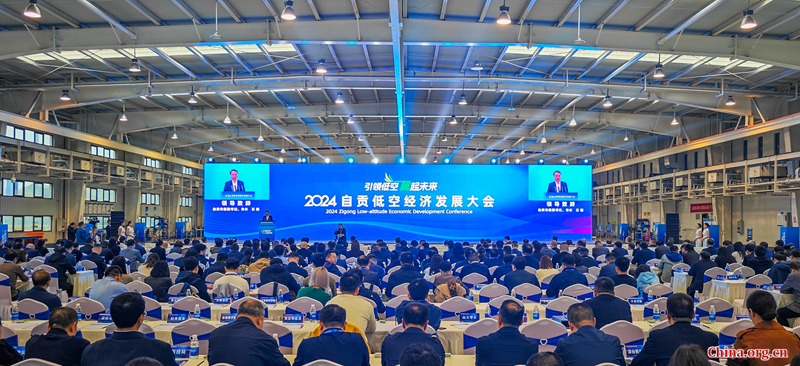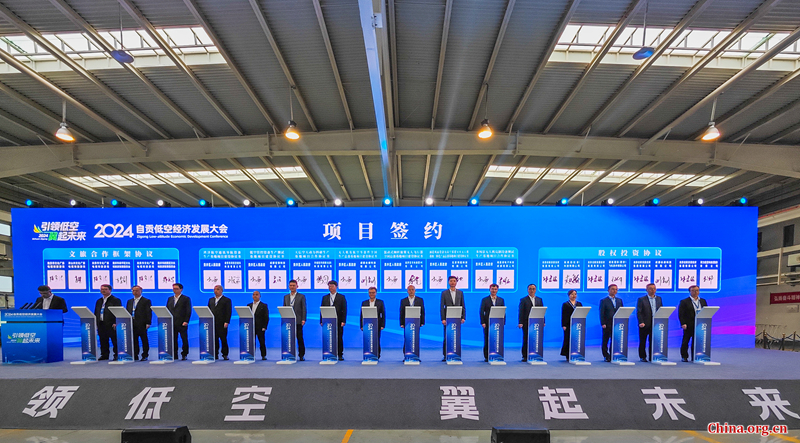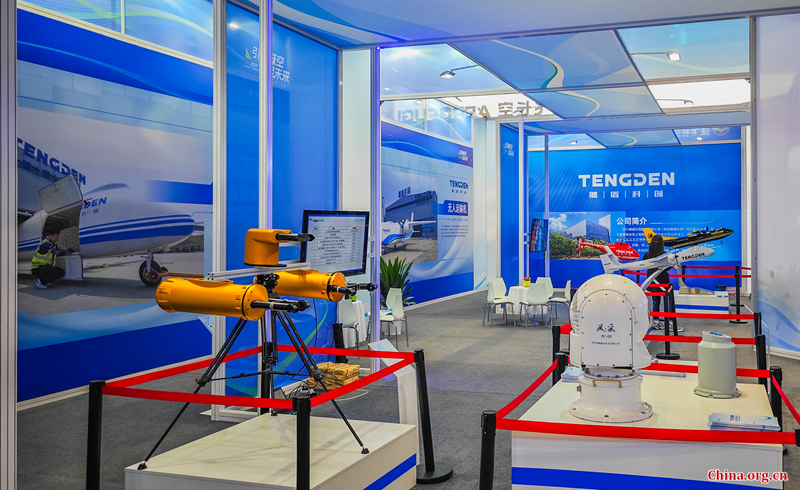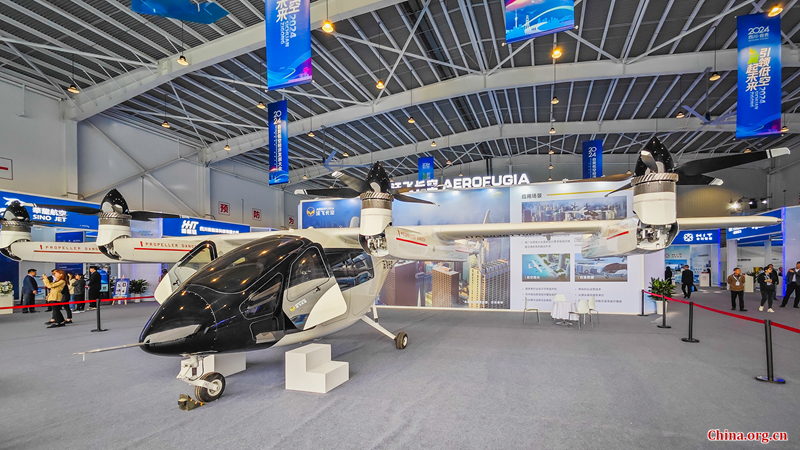
The 2024 Zigong Low-Altitude Economy Development Conference convened at the Zigong Aviation Industrial Park on Nov. 1. The event brought together experts from the domestic low-altitude sector and representatives from nearly 150 companies involved in investment, research and application within related fields.
Discussions focused on technologies to manage unauthorized drones, low-altitude logistics and power systems for aerial vehicles, aiming to promote collaboration across the emerging aviation industry.

During the conference, the Zigong municipal government signed cooperation agreements with four enterprises, while the Gongjing district government and Zigong Innovation Development Investment Group Co. Ltd. inked deals with 10 enterprises. These agreements, totaling 10.7 billion yuan ($1.47 billion) in investment, encompass 15 industrial projects, including drone manufacturing, unauthorized drone management systems, low-altitude control equipment and aviation engine research and production.
The conference also included the signing of agreements for projects focused on last-mile delivery to remote border areas, short-distance air transport and low-altitude logistics. These agreements aim to facilitate comprehensive demonstration projects in various applications.

Zigong plans to focus on enhancing its manufacturing capabilities, advancing industrial technological innovation, optimizing airspace resources, improving flight support and expanding low-altitude application scenarios. The city aims to establish itself as a leader in emerging sectors like electric vertical takeoff and landing aircraft (eVTOLs) and unauthorized drone management systems.
The city also seeks to create an integrated development framework for unmanned aerial vehicles (UAVs) that covers high, medium and low altitudes as well as various sizes. The city will continue constructing the Sichuan Provincial UAV Industry Innovation Center and establish the Zigong branch of the China (Chengdu) Institute of Low-Altitude Economy, driving breakthroughs in key technologies for eVTOLs and large cargo drones.

Additionally, Zigong plans to strengthen its low-altitude airspace reform pilot projects, boost airspace utilization efficiency and promote interconnected low-altitude corridors with neighboring cities. The city intends to expand its role as an incubator for low-altitude applications, focusing on government services such as emergency rescue, meteorological monitoring and hazardous operations. Officials said the city will support consumer applications, including low-altitude tourism, logistics delivery and short-distance transport, broadening the scope of drone-integrated services.